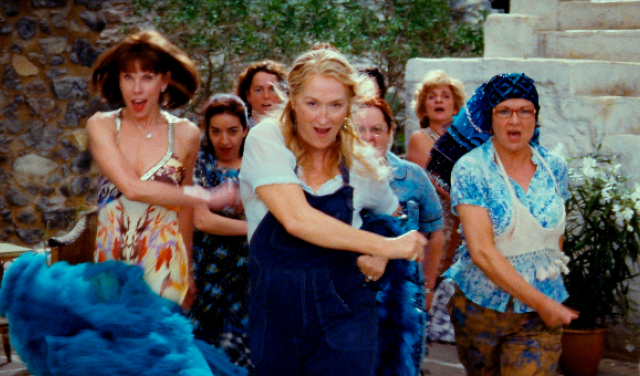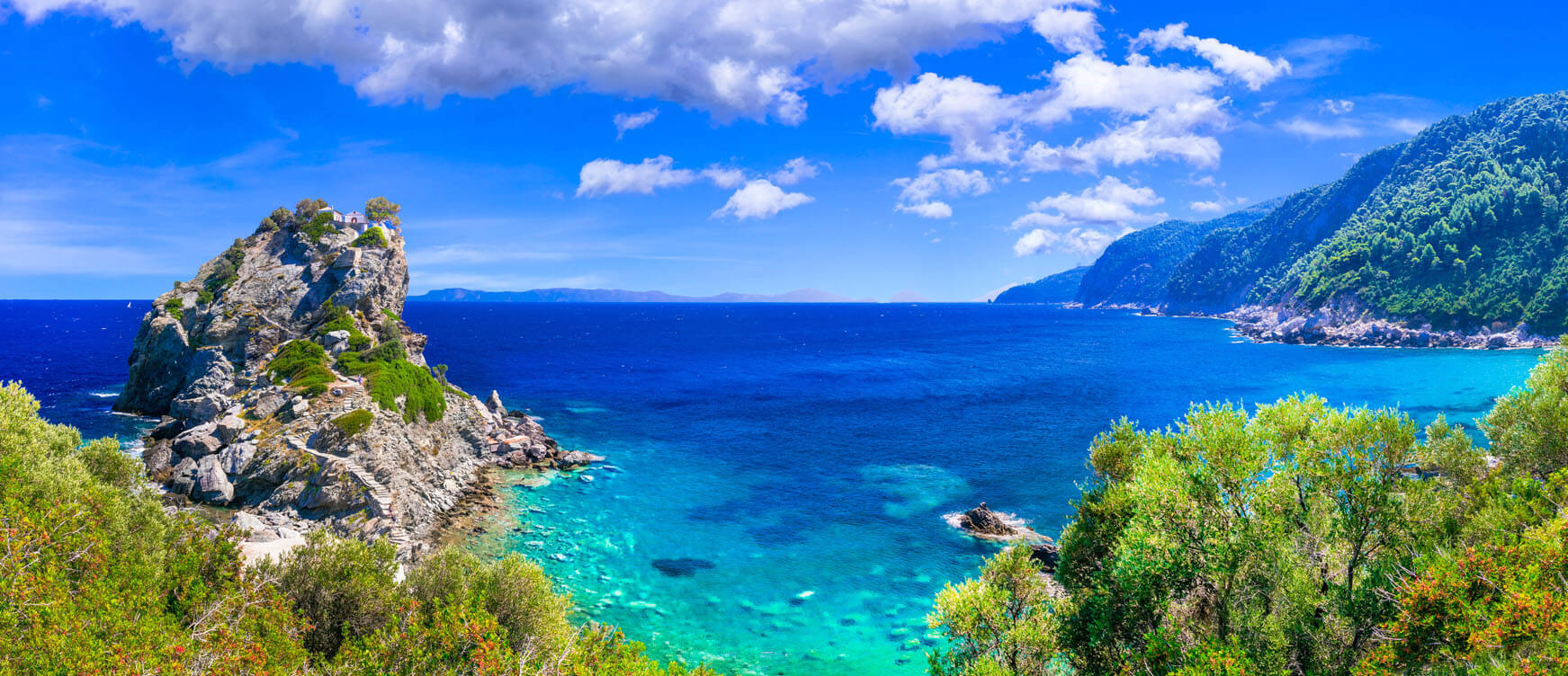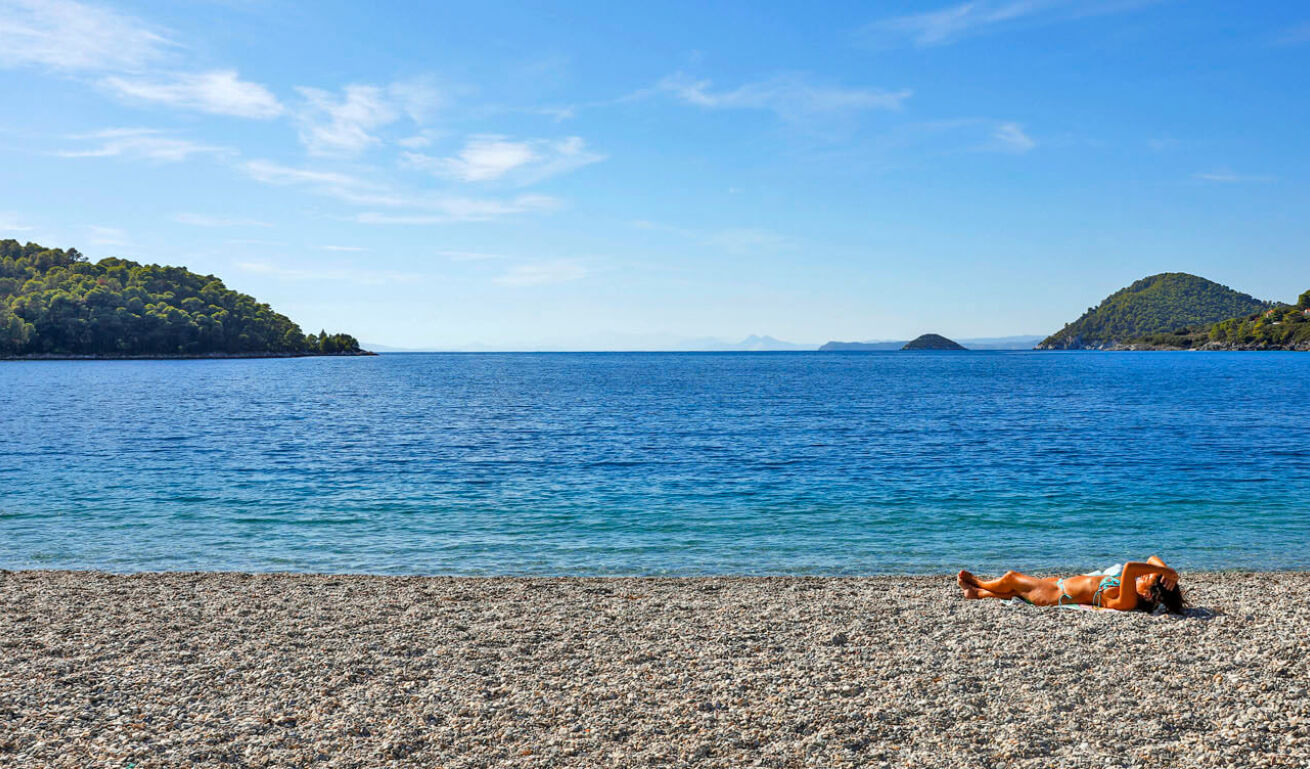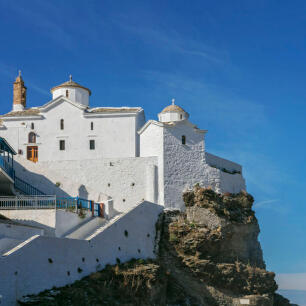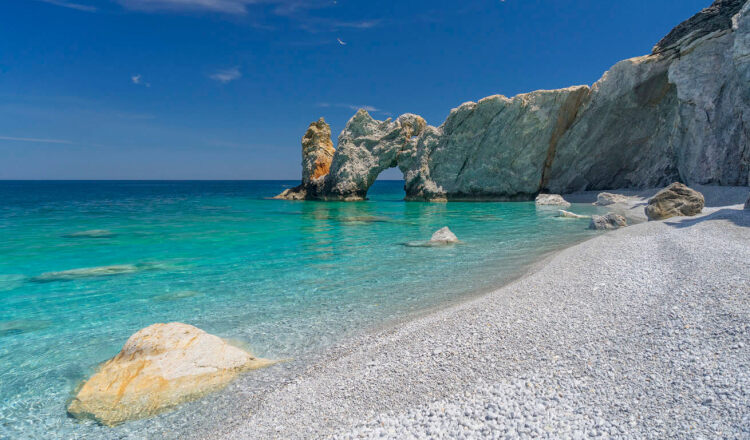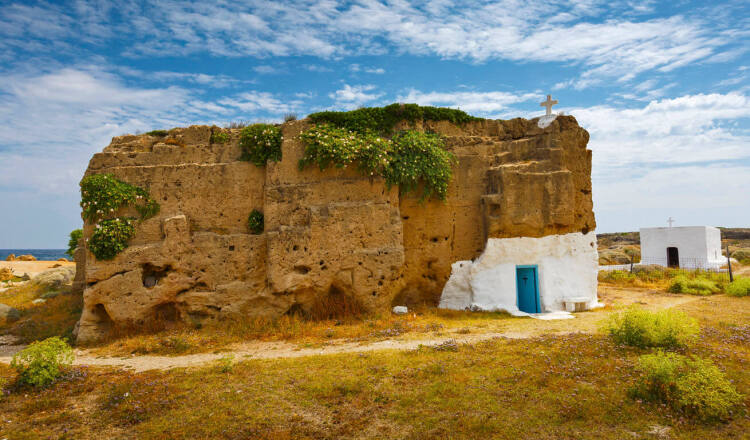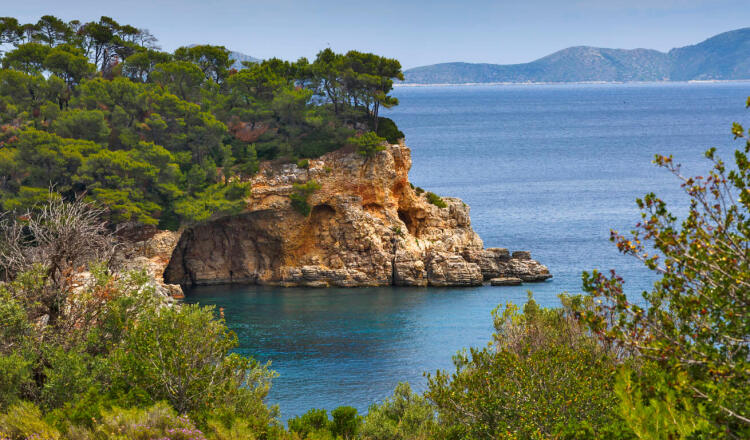The island’s beautiful capital town Chora on the northern coast is located on a hillside and sprawls around the mediaeval castle with sweeping views over the Aegean Sea. Start your journey from the town’s port from Panagitsa tou Pyrgou Church (Holy Mary of the Castle) where the twisty narrow paved streets will lead you to the 13th c. venetian castle. On your way up to the castle, enjoy this picturesque town, declared as traditional since 1978, thanks to its architecture. Admire the remarkable stone-built houses untouched by time with picture-perfect courtyards and stop by the 9th c. church of Agios Athanasios, the oldest one on the island.
Take a trip through the rich history of the island by paying a visit to the Folklore Museum, housed in a renovated 18th c. stately building, where you can get a glimpse at what a household looked like in the past and learn more about the island’s customs. Travel back in time by visiting the museum, Vakratsa Mansion, located in the centre of Chora, where you will witness a typical Skopelian three-storey structure, personal items from the Vakratsa family and its beautiful green courtyard usually used as an event venue.
Other sights you shouldn’t miss are the imposing Byzantine monasteries such as Evangelistrias and Timiou Prodromou, located at the best spots in town. The old monastery of Evangelistrias, located east of Chora (restored in 1712), is renowned for its fortification and wonderful views of the town and port. Also see the Episcope, a Venetian building that was supposed to become the seat of the Bishop of Skopelos but remained unfinished due to the invasion of the pirate Barbarossa in 1538.
The Skopelian style house of Pavlos Nirvanas - a Greek scholar born in Skopelos - is located in Chora town and is nowadays an exhibition space showcasing the island’s journey from antiquity to present day.
Among the most significant ancient sanctuaries around the town of Peparithou (and the oldest in the Aegean) is the one of Asclepieion located south-east of Skopelos Bay in the region of Livadi-Ambeliki, which was discovered thanks to an inscription dedicated to the ancient Greek God of Medicine, Asclepius. Numerous archaeological missions have unearthed amphoraes, parts of statues, clay figurines, Attic red-figure pottery as well as coins dating back from the 4th c. to the Hellenistic Period. These finds reveal that other sanctuaries of other Gods were added to the main sanctuary.
If you are more of a nature lover, head 9km West to Sentoukia and visit the forest on Mount Delfi, where roman tombs have been found.
Glossa is Skopelos’ second biggest village after Chora (25km N). “The tall village” according to Greek novelist Papadiamantis is distinctive for its traditional and noble style. Narrow alleys, well preserved Skopelian design houses, colourful corners make this village a destination you shouldn’t miss. The surrounding area is also of interest for its archaeological finds such as ruins of towers and other structures.
Agnontas is built against a lush green background covered with fir, cypress and plane trees. This is a safe haven port for boats to moor when weather conditions are rather bad and the port of Skopelos is unreachable. Stop by the beautiful beach at Limnonari Bay (1.5Km N.). From Stafylos on the main road towards Amarantos head to scenic seaside rock gap Drakontoschisma (turn left on the dirt road and left again at the fork). It is located right behind a small church built on the side of the steep cliffs where fir trees grow or rather hang over the mesmerising beach below with turquoise waters (reachable only by boat). Legend has it that approximately 800 years ago a dragon used to live here that killed all its inhabitants and thus became a deserted island. Then patron and protector of Skopelos, Saint Riginos, chased the dragon off the cliff to his death. The Drakontoschisma gap has been named after the dragon (drakos means dragon in Greek).
Don’t miss the villages of Panormos (9 km north-west) and Stafylos (4km east) with their renowned pebble beaches and facilities. The route to Stafylos runs through a dense pine forest.
Ilios village (22km NW from Chora) is built at the greenest spot of Skopelos where you will find fir trees reaching down to its beautiful shores. It’s a rather new village built by the villagers of Palio Klima in the 1980’s. Fishing boats are docked at the villages’ little marina and the wider area, from Panormos up to Palio Klima, you will get the chance to explore a number of amazing beaches such as Chovolos.
You shouldn’t leave the island before you visit Aϊ Giannis, the renowned chapel from the Mamma Mia film where Meryl Streep sings Abba’s song to Pierce Brosnan “The Winner takes it all”. Since the film’s release in 2008 earning a record high of $610 milion the captivating setting has become a wedding destination for lots of couples planning to say “I do”. Even though you have to climb up some 106 carved-in-rock steps to reach the picture-perfect chapel you will enjoy one of the best views of the archipelago.
All villages on the island of Skopelos offer high quality services; rooms, hotels, restaurants, cafes and bars that will please every taste and budget! Time permitting, enjoy a boat ride or day cruise to the neighbouring islands of Skiathos or Alonnisos where you can pay a visit to the National Park, home to the Mediterranean seal Monachus Monachus.
